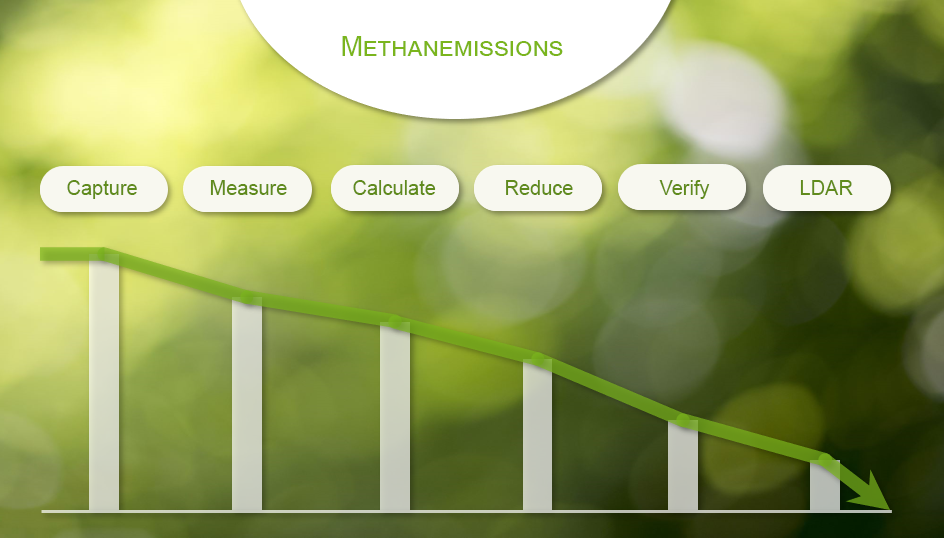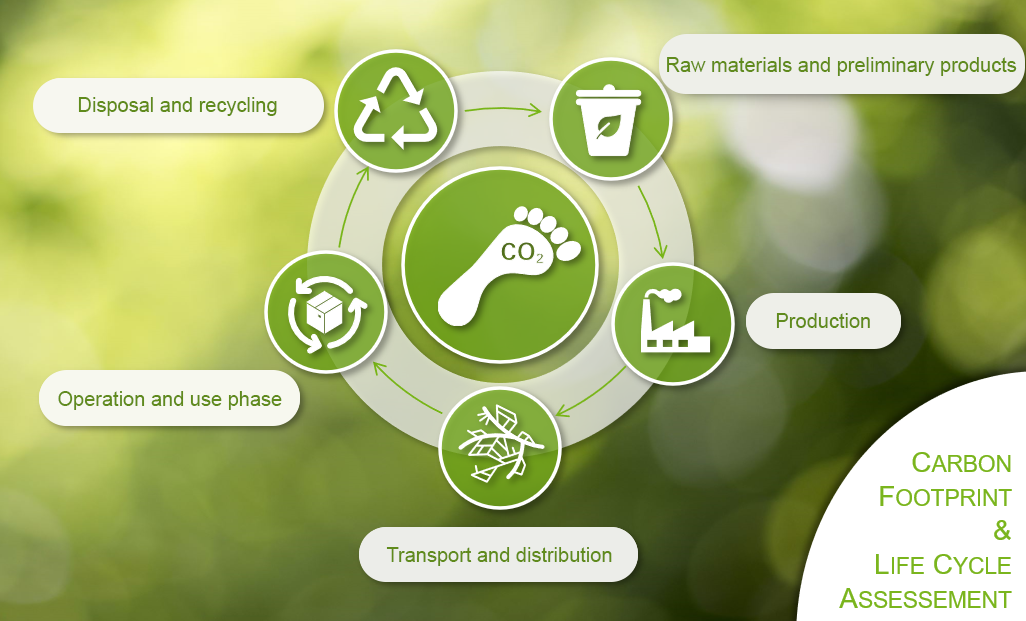TEAM
Emissions & life cycle assessments
Climate neutrality by 2050 – this is what the EU wants to achieve with the European Green Deal. Methane is the second most relevant greenhouse gas after carbon dioxide. The Global Methane Pledge was initiated at the COP26 climate summit in November 2021 and has since been signed by 150 countries. The agreement aims to reduce methane emissions by 30% by 2030 compared to 2020 levels. In addition to voluntary commitments by companies (e.g. by joining the Oil & Gas Methane Partnership OGMP 2.0), the EU Methane Regulation came into force in August 2024 in order to improve the recording and verification of methane emissions in the energy sector. Operators of gas and coal facilities have to measure, report and verify their methane emissions, carry out more frequent maintenance and repairs (LDAR) and reduce emissions.
Emission reductions can be implemented using various technologies. In order to assess which measures make sense, we carry out carbon footprint calculations / life cycle assessments. All relevant processes of a life cycle (production, transportation, operation/use and disposal) are considered and the saved and additional greenhouse gas emissions are compared.
We have experience with carbon footprint calculations for natural gas of different origins and technologies (e.g. LNG). With the targeted decarbonization of the gas market, hydrogen is moving into focus. Here too, the contribution to reducing emissions depends on the technology used and the boundary conditions such as the origin of electricity and transportation routes.


We offer the following services:
We are happy to advise you on greenhouse gas emissions (especially methane and hydrogen emissions) in the energy sector. We support you in developing a suitable measurement program, in collecting emissions data and in fulfilling your reporting obligations. Benefit from our many years of experience from numerous projects.
Record & report methane emissions
- Creation of concepts for consistent data collection
- Preparation and plausibility check of data
- Advice on the Oil and Gas Methane Partnership (OGMP) and filling in the OGMP/Marcogaz template in collaboration with the network operator
- Creation of specific tools for determining emissions
Measuring (quantifying) methane emissions
- Measurement of methane emissions from underground pipelines and pressure regulating and meter stations by suction method
- Permeation measurements (CH4, H2, CO2) on (plastic) pipes in the laboratory and in field tests
Leak Detection and Repair (LDAR)
- Inspection of gas systems with a suitable gas detection camera (optical gas detection)
Reducing methane emissions
- Identification of potential savings
- Evaluation of the applicability of various technologies (e.g. vacuum pumps to avoid purge emissions)
- Recommendation of possible measures
Carbon footprint calculation / life cycle assessments
- Ecological assessment in the context of feasibility studies in general, or specifically for H2, H2 derivatives (e.g. NH3), CH4 and CO2
- Assessments with LCA software for the following indicators:
- Emission of greenhouse gases / carbon footprint
- Emission of air pollutants
- Use of water resources / water footprint
- Consumption of raw materials / raw material footprint
- Primary energy consumption
- Eutrophication
- Land use
- Waste flows and quantities
- Derivation of emission reduction measures
Selected projects
- Filling the OGMP template for 2019 and 2020 and developing a calculation tool for third-party damage (ME VNB 2)
Related topics
Environment & special projects
We deal with technical specialties and future topics of gas networks and gas plants. One focus is on the transformation of gas networks, the modeling of complex energy systems and the preparation of feasibility studies and potential analyses.
Plant design & documentation
We have many years of experience in the design of gas network systems and pipelines as well as the comprehensive, legally compliant and digital documentation of existing plants and pipelines.
We digitize all existing documents for you!
Power-to-gas
We carry out potential analyses to identify preferred locations and possible applications for power-to-gas (PtG) plants and investigations into hydrogen compatibility and its impact on the gas network and the end customer.
Network projects
We support gas network operators in the creation of specific network models and their performance-oriented optimization as well as in the transformation of their gas networks for the future distribution of hydrogen in order to ensure long-term security of supply.
Your contact to us

The DBI Newsletter.
Receive regular updates from the DBI, tailored to your personal interests.


